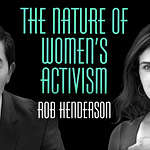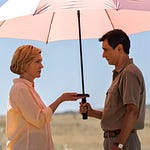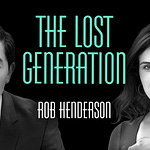Topics covered:
Parental selection in human evolution. I’ve written about this here
For centuries, people created myths that sick or disabled babies were actually fairy imposters—“changelings”—swapped in to drain family resources.
These infants were sometimes left in the woods overnight. If they died, it meant the fairies didn’t take them back. If they lived, people believed the real child had returned.
From an evolutionary perspective, this was a brutal survival test disguised as mythology. The weak were abandoned; the strong, if they survived, were deemed worth raising.
Sarah Hrdy, an anthropologist, has written about how folk tales helped parents rationalize impossible decisions when resources were limited.
Understanding the “Death Mother” from an evolutionary lens—a framework for understanding how maternal care gets rationed based on survival odds.
Jungians take a different approach. They focus on how a child experiences a mother who withholds care—as a cold, dangerous presence. A mother figure who, consciously or not, wishes the child didn’t exist.
Jungian analyst Marion Woodman describes this as “the energy of Medusa”—a deadening force that drains vitality and instills deep shame in children who grow up feeling unloved.
A striking finding: married mothers are less happy when their husbands are home full-time vs. working, and men’s job loss increases divorce risk while women’s does not
Being unemployed triples the suicide risk for men. Also discussing why men make up 80% of suicides despite being under 50% of the population
The “no one left to blame” theory of suicide
Attractive social scientists earn more on the public speaking circuit, but for natural scientists, being less attractive raises perceived competence and speaking fees
The self-esteem movement of the 80s and 90s was supposed to boost kids’ confidence but often just inflated their narcissism. Praising people for their effort works, but indiscriminate praise backfires.
Among young men who aren’t working, nearly half the decline in working hours from 2004–2017 can be traced to video games and porn. NEETs—young men who are not in education, employment, or training—aren’t unlocking creative potential with their free time. They’re stuck in a loop of gaming, weed, porn, and sports betting
If you can get hooked on leveling up in video games, you can get hooked on leveling up in real life. The gym gives you that same hit of progress—except it actually matters, unlike a video game
Why I don’t buy the argument against free will. Even if free will doesn’t exist in some abstract, scientific sense, we still treat people as if it does—and that matters more than the theory
Free will skeptics often smuggle in moral assumptions: that criminals shouldn’t be held accountable because they didn’t choose to commit crimes. But then somehow the rest of us do have the free will to design better systems. An incoherent and quietly elitist argument
Whether the findings of women outperforming men is exaggerated. Short answer: not really. Across education and income, young women are doing better than young men in nearly every category
Ironically, working-class married couples are more likely to be dual-income than upper-middle-class ones. The upper middle class people who talk most about gender equality practice traditional roles more than the people who don’t
Film recommendation: Meeting with Pol Pot. A compelling new film about Western journalists visiting Cambodia during the communist takeover in the 1970s. I'm fascinated by how communist regimes have managed to seize power across such different societies, and why people keep falling for it
I also recommend First They Killed My Father
Join me for my next live video in the app.











